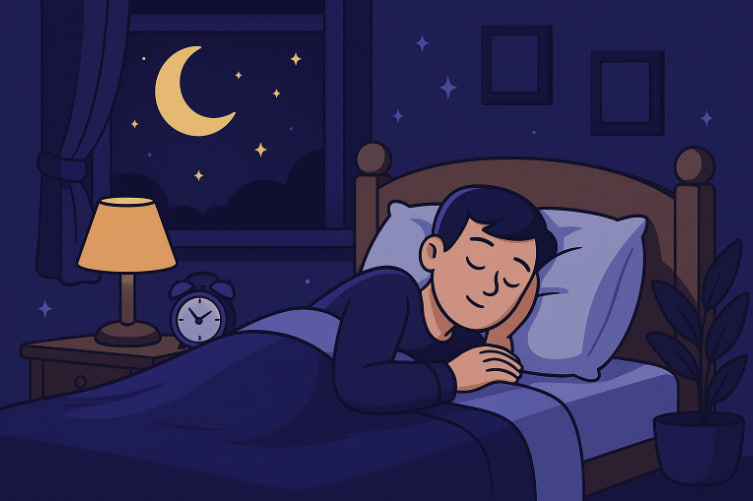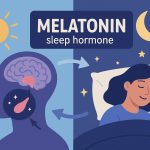In our fast-paced, digitally connected world, sleep problems have become a common issue. From difficulty falling asleep to waking up tired despite hours in bed, millions struggle with maintaining healthy sleep. But the good news is that most sleep disruptions can be reversed with the right habits and environment. This article explores the causes of poor sleep and provides practical, science-based strategies to restore a healthy sleep cycle.
Why Is Healthy Sleep So Important?
Sleep is not just a period of rest — it’s a vital biological process that affects nearly every system in the body:
- Supports immune function and tissue repair
- Regulates hormones, mood, and appetite
- Boosts cognitive performance and memory
- Reduces risk of chronic diseases such as heart disease and diabetes
- Helps regulate emotional stability and mental health
Chronic sleep deprivation is linked to anxiety, depression, weight gain, and weakened immunity.
Common Causes of Poor Sleep
- Stress and anxiety
- Excessive screen time before bed
- Irregular sleep schedule or shift work
- Caffeine or alcohol intake late in the day
- Sleep disorders such as insomnia, sleep apnea, or restless legs syndrome
- Uncomfortable sleep environment (light, noise, temperature)
- Lack of physical activity during the day
Signs Your Sleep Needs Attention
- Difficulty falling asleep or waking often
- Feeling tired despite 7–8 hours of rest
- Mood swings or irritability during the day
- Trouble focusing or remembering things
- Relying on caffeine to stay awake
Tips to Restore Healthy Sleep
1. Establish a Regular Sleep Schedule
- Go to bed and wake up at the same time every day — even on weekends
- Helps reset your circadian rhythm (internal body clock)
2. Create a Sleep-Friendly Environment
- Keep your bedroom cool, dark, and quiet
- Use blackout curtains or an eye mask
- Reduce noise with earplugs or white noise machines
- Use your bed only for sleep and intimacy
3. Limit Screen Time Before Bed
- Avoid phones, tablets, and computers at least 1 hour before sleep
- Blue light from screens suppresses melatonin, a sleep-regulating hormone
4. Be Mindful of Food and Drink
- Avoid caffeine (coffee, energy drinks, chocolate) after mid-afternoon
- Limit alcohol, which disrupts REM sleep
- Don’t go to bed hungry — have a light snack if needed
5. Develop a Relaxing Pre-Sleep Routine
- Try reading, taking a warm bath, meditation, or gentle stretching
- Avoid stimulating or stressful activities close to bedtime
6. Get Daylight and Stay Active
- Exposure to natural light during the day improves sleep quality
- Regular exercise (earlier in the day) helps reduce stress and supports deep sleep
7. Avoid Napping Late in the Day
- If needed, nap for 20–30 minutes early in the afternoon only
- Long or late naps can disrupt nighttime sleep
When to Seek Medical Help
If you’ve tried lifestyle changes but still struggle with sleep for more than 2–3 weeks, consider consulting a healthcare provider. You may have:
- Chronic insomnia
- Obstructive sleep apnea
- Circadian rhythm disorder
- Mental health issues affecting sleep
Treatment may include cognitive behavioral therapy, sleep studies, or short-term medication under supervision.
Conclusion
Restoring healthy sleep requires more than just going to bed earlier — it involves resetting habits, managing stress, and creating the right environment. With consistency and patience, most people can rebuild a sleep routine that supports energy, mood, and overall health. Sleep is not a luxury — it’s a necessity for a thriving life.
Glossary
- Circadian rhythm – the body’s natural 24-hour cycle that controls sleep and wake patterns
- Melatonin – a hormone that helps regulate the sleep-wake cycle
- REM sleep – a deep sleep phase important for memory and emotional health
- Sleep hygiene – habits and practices that support healthy sleep
- Insomnia – a sleep disorder characterized by difficulty falling or staying asleep


